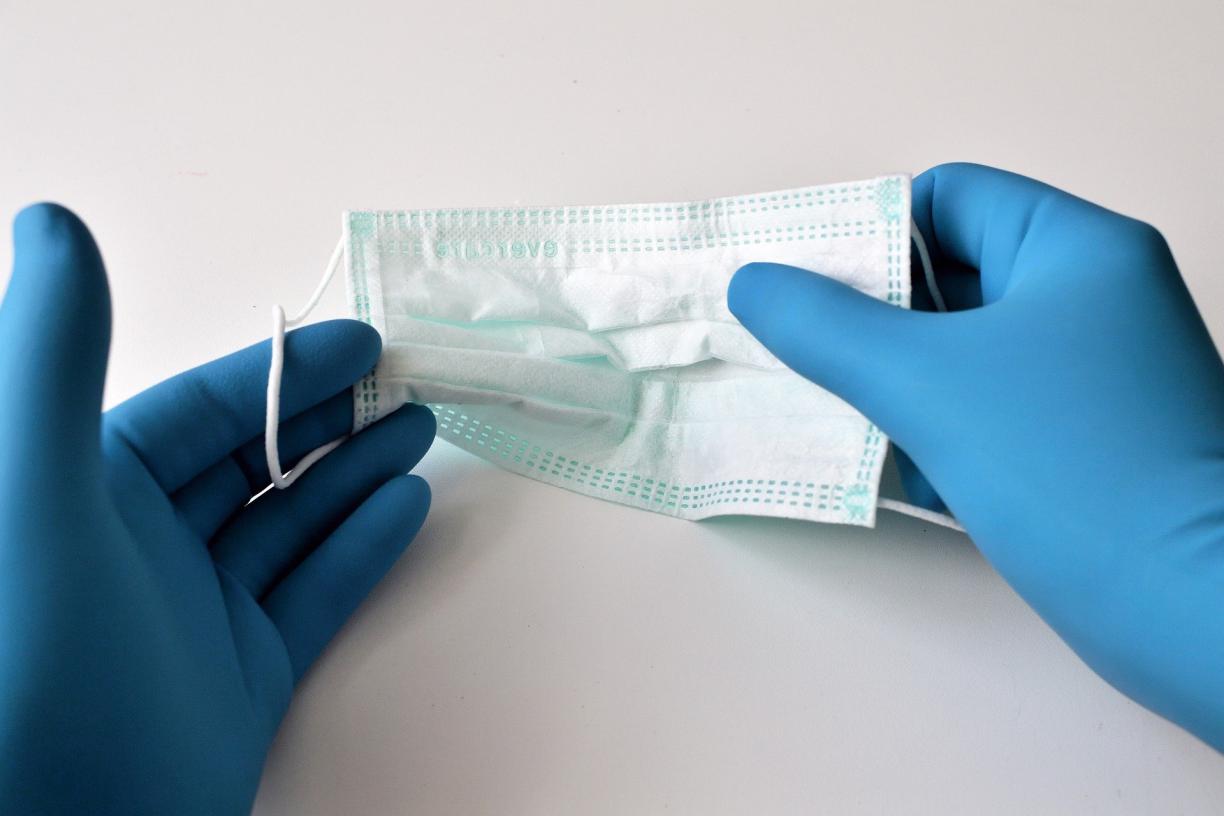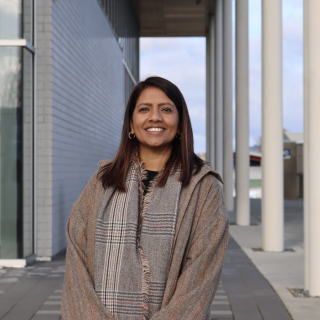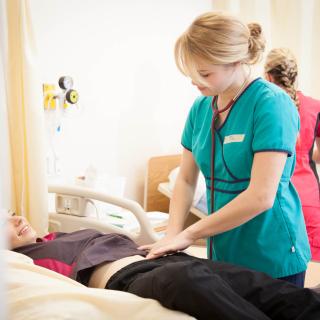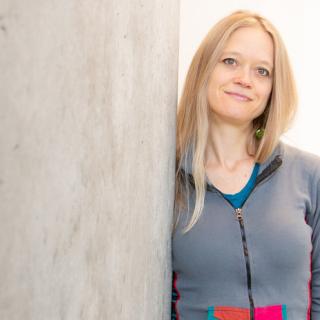Expert Commentary: As the number of businesses and organizations implementing mask-wearing policies and guidelines increases, we were curious about some of the effects of this new way of interacting with one another. Dr. Lindsay McCunn, a VIU Psychology Professor, and Maureen O’Connor, a VIU Bachelor of Science in Nursing Professor, share some thoughts.
Wearing a mask is one way to minimize the spread of COVID-19. However, it requires people to use different strategies and social cues in order to communicate clearly and effectively with each other.
“We as humans are born communicators, but we usually look at the whole face. The brain prefers to see wholes and now we often see half of a face,” says Dr. Lindsay McCunn, a VIU Psychology Professor. “It’s not as efficient for the brain when it’s interpreting what is being said.”
Changing social cues

McCunn says that people wearing masks are now more aware of using other cues during conversations.
“We use our eyes a lot more. The eyes are a secondary way to understand what someone means and what their facial expression is telling us. We are noticing gestures being made and we can compensate when we wear a mask by using our hands and arms to get what we want to say across,” says McCunn.
More than 75% of communication is non-verbal and most of that is through facial expressions, explains Maureen O’Connor, a VIU Bachelor of Science in Nursing Professor.
“It is estimated that humans can make and interpret more than 250,000 facial expressions,” says O’Connor. “So, if your face is covered, it is more difficult to convey what you are trying to express, and it is more challenging for others to interpret you correctly.”
People who are more visual interpreters and listeners tend to use eye contact more, says O’Connor, adding that people who comprehend primarily by listening tend to look away from the speaker to focus. O’Connor says it’s important to note that eye contact isn’t considered respectful in some cultures and religions. Lack of eye contact doesn’t mean the person isn’t paying attention.
Communicate clearly
O’Connor says if people can’t hear the conversations around them they’ll miss important information and it can make them feel excluded, socially isolated and can lead to depression. O’Connor, who teaches communication in nursing in the VIU Bachelor of Science in Nursing program, offers the following tips to help communicate better:
- Face the person you want to speak to and address them so they are aware you are talking to them,
- Enunciate your words and speak slowly and clearly,
- Don’t yell as it could make your words unclear and make the listener feel guarded,
- Speak at the same volume instead of letting the end of the sentence trail off,
- Be patient if someone asks you to repeat yourself and try saying it in another way as some words are easier to understand than others,
- Pay attention during conversations and avoid distractions such as cellphones,
- Actively listen and concentrate on the speaker during conversations to understand what the person is saying.
Barriers to wearing masks
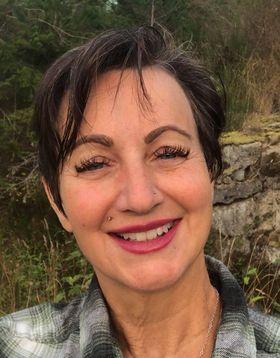
Masks are a critical part of preventing the spread of COVID-19 (see information below). It is also important to understand that there may be barriers to some people wearing them. For example, masks can pose challenges for the elderly and other people with sensory deficits, such as hearing issues.
“Many people with hearing challenges rely on lip reading and facial expressions to correctly understand what is being said and with a mask this isn’t possible,” says O’Connor.
There are some people who find wearing a mask challenging because of physical or psychological barriers, says McCunn, which can place more stress on people. For example, McCunn notes, individuals with obsessive compulsive disorder, or other sensory or anxiety-based disorders, may find wearing a mask too difficult. They may constantly feel the cloth on their skin without being able to take their attention away from it. Some individuals can become so focused on the mask that they can’t attend to conversations or other social cues.
McCunn notes that there are situations where people not wearing masks could feel misunderstood or be at risk of social confrontation. They may feel as though they need to explain themselves to combat the judgments of others, she says.
Addressing barriers to wearing a mask
One way to minimize discomfort can be drawn from the field of psychology, says McCunn. Similar to what is involved in exposure therapy, it may help those who are anxious about wearing a mask to practice wearing one in a safe setting, like at home or in an open, outdoor space. Becoming more comfortable with how a mask feels on one’s face, and what to expect when it moves around as one breathes, laughs, or smiles may be helpful. Doing this for short periods of time before taking it off to get used to the new sensations may help some people get used to wearing a mask for longer periods of time.
Changes to our environment
McCunn, who specializes in environmental psychology, also says that the way people interact with their environment has fundamentally changed since COVID-19. Now, when people go to a store, they need to use hand sanitizer before they enter, stand two-metres apart, wear a mask and follow directional arrows.
“It can feel more difficult to accomplish simple goals, such as grabbing a coffee at a local store, without having to adjust normal behaviour. I find that to be very interesting as a psychologist because some people could perceive that there has been environmental and personal control taken away from them during this time,” says McCunn. “Depending on how that shift is interpreted by someone, in addition to the growing social norm of wearing a mask, it may be something that is adding to our uncertainty or uneasiness when engaging with others in public. It will be important for environmental and social psychologists, as well as other interdisciplinary researchers, to measure how these prescriptions about personal space affects our sense of tolerance and territoriality over time.”
The public health role masks play
According to the BC Centre for Disease Control, “masks have a role to play in preventing the spread of COVID-19 … because masks act as a barrier to help stop the spread of droplets from a person’s mouth or nose when talking, laughing, yelling, singing, coughing or sneezing.”
Public Health Services Canada recommends wearing a mask when it isn’t possible to consistently maintain a two-metre physical distance from others, particularly in crowded public settings such as stores, shopping areas and public transportation.” Public Health Services recommends wearing masks combined with frequent hand washing and maintaining physical distancing when possible. Read more about Public Health Services Canada recommendations.
-30-
MEDIA CONTACT:
Rachel Stern, Communications Officer, Vancouver Island University
C: 250.618.0373 l E: Rachel.Stern@viu.ca | T: @VIUNews

